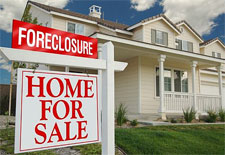 In an effort to collect unpaid assessments, Associations have the power pursuant to California Civil Code Sections 1367(a) and 1367.1 to record a lien on the offending property and subsequently enforce that lien through foreclosure. After the foreclosure sale, California Code of Civil Procedure § 729.035 states that “the sale of a separate interest in a common interest development is subject to the right of redemption…if the sale arises from a foreclosure by the association of a common interest development…” This right of redemption allows the delinquent homeowner to redeem the foreclosed property from its purchaser by paying the requisite “redemption price” within 90 days. California Civ. Code § 1367.4.
In an effort to collect unpaid assessments, Associations have the power pursuant to California Civil Code Sections 1367(a) and 1367.1 to record a lien on the offending property and subsequently enforce that lien through foreclosure. After the foreclosure sale, California Code of Civil Procedure § 729.035 states that “the sale of a separate interest in a common interest development is subject to the right of redemption…if the sale arises from a foreclosure by the association of a common interest development…” This right of redemption allows the delinquent homeowner to redeem the foreclosed property from its purchaser by paying the requisite “redemption price” within 90 days. California Civ. Code § 1367.4.
The recently decided case of Barry v. OC Residential Properties, LLC (2011), holds that if such a homeowner wishes to exercise her right of redemption, the redemption price should include any repair costs paid by the purchaser that were “reasonably necessary for the preservation of the property.”
In Barry, the Plaintiff redeeming homeowner challenged the redemption price because it included over $17,900 in expenses that the Defendant purchaser paid for maintenance and repair work on the unit after the foreclosure sale, an electric bill, and interest on the foreclosure sale price. In ultimately affirming the validity of the redemption price, the court in Barry relied on a declaration given by one of Defendant’s project managers that concluded that the unit was “in need of repair and rehabilitation” and that the “repairs made were necessary to prevent further damage to the property.”
To read the Barry case, click here.
 HOA Lawyer Blog
HOA Lawyer Blog

